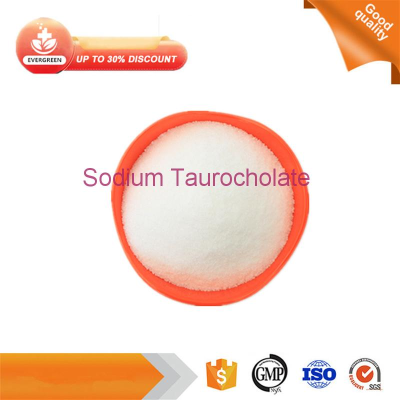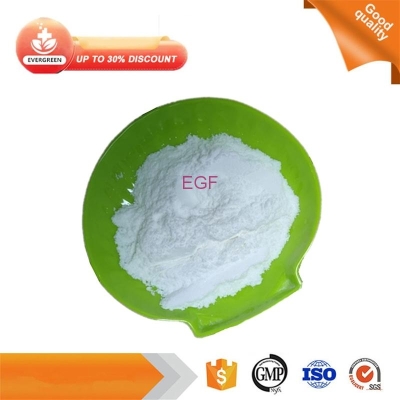-
Categories
-
Pharmaceutical Intermediates
-
Active Pharmaceutical Ingredients
-
Food Additives
- Industrial Coatings
- Agrochemicals
- Dyes and Pigments
- Surfactant
- Flavors and Fragrances
- Chemical Reagents
- Catalyst and Auxiliary
- Natural Products
- Inorganic Chemistry
-
Organic Chemistry
-
Biochemical Engineering
- Analytical Chemistry
- Cosmetic Ingredient
-
Pharmaceutical Intermediates
Promotion
ECHEMI Mall
Wholesale
Weekly Price
Exhibition
News
-
Trade Service
This article is the original of Translational Medicine Network, please indicate the source of reprinting
Written by Lily
Colorectal cancer is one of the
most common cancers worldwide.
According to the GLOBOCAN 2020 Global Cancer Burden Report released by CA Cancer J Clin, colorectal cancer (10.
0%) ranks third in the world in new cases, behind breast cancer (11.
7%) and lung cancer (11.
4%); At the same time, colorectal cancer (9.
4%) is the second leading cause of cancer death in the world, after lung cancer (18%)
.
Colorectal cancer has no obvious early symptoms, a long intervention window, and good survival benefits from early intervention, which is one of the most suitable cancers for population screening, and is the focus
of attention in the field of early cancer screening.
Notably, most colorectal cancers develop from benign polyps through a series of genetic and epigenetic changes, a process that takes about 10-15 years
.
Colorectal polyps are extremely common (about half of people over the age of 50 have polyps), but only a small percentage develop into cancer
.
At present, colorectal cancer screening technologies consistently recommended by domestic and foreign guidelines include colonoscopy, sigmoidoscopy, colon CT imaging technology, fecal occult blood screening (gFOBT and FIT), etc.
, but there is still a lack of high-quality evidence for the best screening strategy: so far, only sigmoidoscopy and fecal occult blood screening have been tested by the "evidence level pyramid" - randomized trials, and have obtained positive results
.
At present, most of the colorectal cancer screening guidelines/expert consensus at home and abroad recommend colonoscopy - colonoscopy screening may be more effective than sigmoidoscopy, because endoscopists can completely view the entire colorectal under the colonoscopy viewing lens
.
As a result, sigmoidoscopy has largely been replaced
by colonoscopy.
However, colonoscopy is invasive and requires adequate bowel preparation, so population participation remains suboptimal
.
In addition, there is a lack of sufficient randomized trial evidence of benefit for colonoscopy screening, and its effect on colorectal cancer morbidity and mortality is still to be confirmed
by clinical data.
A large, multicenter, randomized Nordic colorectal cancer program trial called NordICC fills this evidence gap; The NordICC findings were presented at the 2022 European Gastroenterology (UEG) Conference and simultaneously published in the New England Journal of Medicine on October 9
.
style="box-sizing: border-box;" _msthash="251143" _msttexthash="3188575">The first colonoscopy multicenter, efficacy randomized clinical trial
01
NordICC aims to quantify the possible benefits of colonoscopy screening on colorectal cancer risk and associated death, and is the world's first multicenter, effective, randomized clinical trial
of colonoscopy.
The trial included nearly 85,000 healthy subjects (aged 55-64 years) from three European countries, divided into two groups in a 1:2 ratio: 28,220 invited for colonoscopy screening (42.
0% of whom were screened) and 56,365 were controls (who did not receive colonoscopy screening).
During the median follow-up period of 10 years, 259 cases of colorectal cancer were diagnosed in the invited group and 622 cases in the control group, and the risk of colorectal cancer at 10 years was 0.
98% and 1.
20%, respectively, and the invited group was significantly reduced by 18%
compared with the control group.
The risk of colorectal cancer death in the invited group and the control group was 0.
28% and 0.
31%, respectively, and the all-cause mortality rate was 11.
03% and 11.
04%, respectively, with no significant difference
between the two groups.
This result suggests that colonoscopy does not reduce the risk of colorectal cancer-related death and all-cause mortality in the invited group
.
Figure 1.
10-year risk of colorectal cancer in an intention-to-treat analysis
Figure 2.
10-year risk of colorectal cancer death in an intention-to-treat analysis
"Disappointing" test results
02
The small reduction in the risk of colorectal cancer (18%) and the lack of significant reduction in the risk of death are disappointing, and have also triggered controversies such as "colonoscopy gold standard status challenged" and "screening effectiveness is overestimated", but the editorial issued by NEJM called the study symbolic: the results of the trial may be mainly influenced by several factors - First, low screening adherence (in this trial, only 42% of the invited group were screened).
Adherence refers to the proportion of people invited to the
screening who actually participate in the screening.
In previous sigmoidoscopy screening trials (PLCO in the US, NORCCAP and SCORE in Europe), compliance was 58%~87%, much higher than the 42%
in this trial 。 Through the adjusted protocol analysis, the investigators found that if all participants randomized to the screening group were actually screened, the risk of colorectal cancer would be reduced by 0.
84% from 1.
22% after 10 years, that is, colonoscopy screening reduced the incidence of colorectal cancer by 31%; Participants in the screening group had a 0.
15% risk of dying from colorectal cancer compared to 0.
30% in the routine group, meaning that colonoscopy screening reduced the risk of colorectal cancer-related death by 50%.
Second, short follow-up (median follow-up of 10 years in this trial) directly affected the number
of deaths.
In the early follow-up period, the number of colorectal cancer cases is expected to be higher than the associated number of deaths, and as the follow-up period is extended and more deaths accumulate, the preventive effect of colonoscopy screening to reduce the risk of colorectal cancer death can be reflected
.
The trial is scheduled to be analysed again at 15 years and may lead to a better evaluation
.
Third, colonoscopy is highly dependent on endoscopists, and the detection rate of adenomas in this trial is relatively low
.
The gold standard for colorectal cancer screening
03
According to the Chinese Guidelines for Colorectal Cancer Screening, Early Diagnosis and Treatment (2020), colonoscopy is the gold standard for colorectal cancer screening (strongly recommended, GRADE evidence: high), and high-quality examinations are recommended every 5-10 years (strong recommendation, GRADE evidence: high)
.
At the same time, fecal occult blood testing is recommended once a year (strongly recommended, GRADE evidence: medium).
Based on current evidence, the preventive effect of colonoscopy screening is clear
.
However, it should also be considered that the high cost of colonoscopy screening technology, the high requirements for professional technicians, the more invasive than stool examination and sigmoidoscopy, and the poor public compliance have affected its large-scale and sustained implementation
.
More evidence from large-scale randomised clinical trials is needed to provide an evidence-based basis
for optimizing current screening guidelines with colonoscopy at the core and for determining the best screening techniques.
Resources:
style="white-space: normal;box-sizing: border-box;">Note: This article is intended to introduce the progress of medical research and cannot be used as a reference
for treatment options.
If you need health guidance, please go to a regular hospital
.
Recommendations, live streams/events
October 21 14:00-17:30 Shanghai
Brain nervous system disease diagnosis and drug discovery industry salon
Scan the QR code to participate for free
Nov 01-02 09:00-17:30 Chongqing
The first Southwest Single Cell Omics Technology Application Forum
Scan the QR code to participate for free
November 25-27 09:00-17:30 Shanghai
The 4th Shanghai International Cancer Congress
Scan the code to participate







